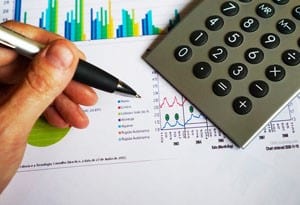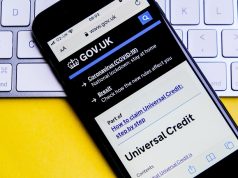If you are self-employed, it is highly likely that you will be required to file a Self-Assessment.
If you are required to file a self-assessment, you will have to keep track of all payments made to you in the tax year. There can be different rates of tax to pay depending on the types of income you receive. Such as, did you receive a dividend or did you sell shares? Did you make a capital gain or did you receive income? These are all considerations that will be made and a good accountant will be able to provide guidance on these.
Important Dates and Deadlines
5th October – You must have registered as self-employed and informed HMRC that you require to file a self-assessment by 5th of October the year after you start your business.
31st October – If you have chosen to file a paper return as opposed to online then you will have to ensure that HMRC has received your return by the Midnight on the 31st of October.
6th April – This date is important because it’s the first day of the new tax year and means that your allowances have been refreshed. If also means that if you start your business after this date you have until January 31st of the subsequent tax year to file the return (So, if you started your business on 31st July 2017 you would have until 31st January 2019 to file the return).
31st January – This date is important because it’s the final day you are able to file your self-assessment online with HMRC for the previous tax year. It’s also the deadline to pay HMRC the tax you owe.
Sole Traders
Wil need to file a return if –
- Income from self-employment is more than £1,000
- More than £2,500 was received from renting out property
- More than £2,500 in other untaxed income was received in the tax year (Such as tips or commission)
- You are the director of a limited company
- You made a profit from selling shares, a second home or other chargeable assets
- Your income from Dividends was more than £10,000
Sole Traders need to file taxes only once per year. If your business or “firm” earned less than £70,000 (excluding VAT) during the tax year, you can use the short self-employed pages on your tax return. You will only need to register for VAT if your trading income exceeds £85,000. As a sole trader, you won’t have to separate out your operating expenses into different boxes, you can enter them all in one place. Do keep your receipts and records. Should your return be examined, you will want to have access to them.
Limited Companies
Limited companies, have a legally separate identity from the proprietors of the business (who, for limited companies, will be the shareholders in the business). As such, HMRC cannot look to those individual proprietors to pay tax on the company’s profits – they must look only at the limited company itself.
A few things to keep in mind when operating a limited company.
- The limited company pays corporation tax on the gross profits and can then distribute the remainder to its shareholders as dividends.
- The gross profit figure is the amount left over after the company has paid any expenses, employees’ salaries and any other obligations.
- Salary drawn by a limited company director is reported in the same way as any other salary, and it is taxed accordingly.
- Dividends are slightly different from a tax perspective however, they carry no NIC liability and have a favourable tax rate over income.
- The limited company must pay employer tax on the salary drawn by the owner.
- A salary drawn by any employee is recorded as an expense to the company.
- A company’s tax year runs from the date it is created until the last day of the month in which it was created (a company created on the 6th June 2018 would run from 6th June 2018 until 30th June 2019). After the first year the year would run from the first day of the subsequent month, until the final day of the month it was created (1st July to 30th June).
- The company has 9 months after year end to file the return for that year.
- If VAT registered, the company must file VAT returns quarterly.
It is very much worthwhile to seek an accountant to assist you with the accounting of the company.
Allowable Business Expenses
The most useful question to ask when reviewing an expense is, is it “wholly and exclusively to benefit the business”? If not, then it’s likely not claimable.
All businesses have allowable expenses. For example, if you build cabinets, you would be able to claim the wood, glue, and screws as expenses. There are also restrictions on the amount you could reasonably claim for food and accommodation. For example, an unnecessarily lavish hotel wouldn’t be regarded as a reasonable expense. This is because you could’ve been expected to stay in a cheaper hotel that would’ve achieved the same goal. This is true whether you are a sole trader, a partner or part of a limited company.









